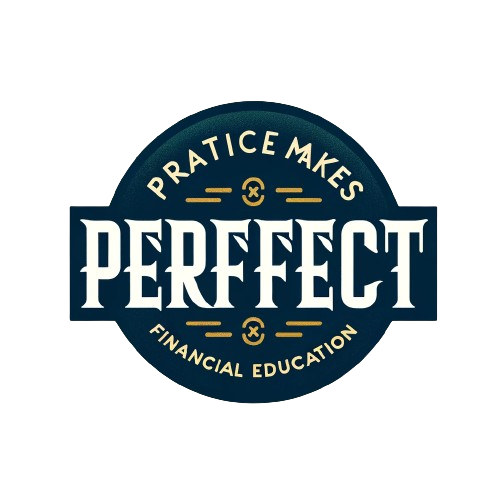In an era where financial literacy is paramount, understanding how to manage your money effectively can make a significant difference in your life. From saving for a rainy day to investing for the future, the knowledge you gain from financial education can empower you to make sound decisions. Fortunately, the advent of online financial education courses has made it easier than ever to access high-quality information and tools right from the comfort of your home. This article explores the benefits of online financial education courses and provides tips on how to get the most out of them.

Why Financial Education Matters
Financial education is the foundation upon which financial independence is built. It equips individuals with the necessary skills to make informed decisions about budgeting, saving, investing, and managing debt. Without a solid understanding of these concepts, it’s easy to fall into financial pitfalls that can have long-term consequences.
Consider this: Imagine you’ve just started your first job. You’re earning a steady income, but without a clear understanding of budgeting and saving, you might find yourself living paycheck to paycheck. On the other hand, with a bit of financial education, you could learn to manage your expenses, save a portion of your income, and even start investing for your future.
The Rise of Online Financial Education
The internet has revolutionized the way we learn, and financial education is no exception. Online courses offer several advantages over traditional classroom settings, including flexibility, accessibility, and a wide range of resources. Here’s why online financial education courses are a game-changer:
- Flexibility: Online courses allow you to learn at your own pace. Whether you’re a busy professional or a student, you can fit your studies around your schedule.
- Accessibility: With just an internet connection, you can access courses from anywhere in the world. This is particularly beneficial for those living in remote areas or those with limited access to traditional educational institutions.
- Diverse Learning Resources: Online platforms often provide a wealth of resources, including video tutorials, interactive quizzes, forums for discussion, and downloadable materials.
Essential Topics Covered in Financial Education Courses
Online financial education courses cover a broad spectrum of topics designed to enhance your financial literacy. Some of the key areas include:
- Budgeting and Saving: Learn how to create and stick to a budget, identify spending patterns, and set savings goals.
- Investing: Understand the basics of investing, including stocks, bonds, mutual funds, and real estate. Learn about risk management and portfolio diversification.
- Debt Management: Gain insights into managing and reducing debt, understanding credit scores, and avoiding common debt traps.
- Retirement Planning: Explore various retirement savings options, such as 401(k) plans, IRAs, and pensions, and learn how to create a retirement plan that suits your needs.
- Tax Planning: Understand the basics of tax planning, including tax deductions, credits, and strategies to minimize your tax liability.
Choosing the Right Financial Education Course
With so many options available, choosing the right online financial education course can be daunting. Here are some tips to help you make an informed decision:
- Accreditation: Ensure that a reputable institution or organization offers the course. Accredited courses are more likely to provide accurate and reliable information.
- Course Content: Review the course syllabus to ensure it covers the topics you’re interested in. Look for courses that offer comprehensive coverage of key financial concepts.
- Instructor Expertise: Check the credentials of the instructors. Experienced and knowledgeable instructors can provide valuable insights and practical advice.
- Student Reviews: Read reviews from past students to get an idea of the course’s quality and effectiveness. Positive reviews can indicate a worthwhile investment of your time and money.
- Support and Resources: Look for courses that offer additional support and resources, such as discussion forums, live Q&A sessions, and access to supplementary materials.
Making the Most of Your Online Financial Education Course
To get the most out of your online financial education course, consider the following tips:
- Set Clear Goals: Before starting the course, define what you hope to achieve. Whether it’s improving your budgeting skills or learning how to invest, having clear goals will keep you focused and motivated.
- Stay Organized: Keep track of your progress by maintaining a study schedule and organizing your notes and materials. Use digital tools, such as calendars and note-taking apps, to stay on top of your studies.
- Participate Actively: Engage with the course material and participate in discussions. Active participation will enhance your understanding and retention of the information.
- Practice What You Learn: Apply the concepts you learn to your financial situation. This hands-on approach will help reinforce your knowledge and improve your financial habits.
- Seek Feedback: Don’t hesitate to ask questions or seek feedback from instructors and peers. Constructive feedback can provide valuable insights and help you improve your understanding of the material.
Top Benefits of Online Financial Education Courses
Top Benefits of Online Financial Education Courses
In the digital age, online financial education courses have become an invaluable resource for individuals seeking to boost their financial knowledge. Here are the top benefits of enrolling in an online financial education course:
- Convenience and Flexibility: One of the most significant advantages of online classes is the ability to learn at your own pace. Whether you’re a busy professional or a stay-at-home parent, you can fit your studies around your schedule. There is no need to commute or adhere to a fixed timetable.
- Access to Expert Knowledge: Online financial education courses often feature instructors with extensive experience and expertise in the field. You gain access to their insights, tips, and real-world examples that can help you navigate complex financial concepts with ease.
- Cost-Effectiveness: Many online courses are more affordable than traditional classroom-based courses. Some platforms even offer free classes, making financial education accessible to a broader audience.
- Diverse Learning Materials: Online courses provide a variety of learning materials, including video lectures, interactive quizzes, e-books, and forums. This diverse range of resources caters to different learning styles and helps reinforce your understanding of the material.
- Networking Opportunities: Enrolling in an online course allows you to connect with fellow students from around the world. These connections can lead to valuable networking opportunities, discussions, and the exchange of ideas.
- Self-Paced Learning: Online courses allow you to learn at your own pace, which means you can spend more time on topics that are challenging and less time on those you find easier. This personalized learning experience can lead to a deeper understanding of the subject matter.
Conclusion
Investing in your financial education is one of the best decisions you can make. Online financial education courses offer a flexible, accessible, and effective way to enhance your financial literacy and achieve your financial goals. By choosing the right course and actively engaging with the material, you can gain valuable knowledge that will serve you well throughout your life. So, take the first step today and start your journey towards financial empowerment.

